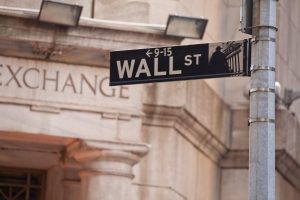As the Beazley share price dips on catastrophe losses, is it time to consider buying?


The Beazley (LSE: BEZ) share price has more than doubled in the past five years, easily beating some other UK insurance sector stocks. But on Wednesday (13 August), it lost 7% in early trading on the back of mixed first-half results.
The Lloyd’s of London insurer reported a 2% rise in insurance written premiums. But profit before tax plunged to $502.5m, from $728.9m in the first half of 2024, due to a rise in catastrophe losses. Those losses include the Californian wildfires, and and a wave of ransomware attacks on UK and European retailers.
CEO Adrian Cox said the company’s “commitment to delivering strong profit through the market cycle is demonstrated by our 84.9% undiscounted combined ratio.” That’s a measure of underwriting profitability, and it’s up from 80.7% a year ago.
Risky business
Those of us who invest in the cyclical insurance sector shouldn’t be too fazed by these losses. They happen, they’re part of the business, and we just have to get on with it. But it’s why I think a long-term commitment is especially important here. Thinking of investing in insurance stocks for a minimum of five years? I’d make it at least 10 years, ideally 15 or even 20.
It looks to me as if the long-term focus is still strong with Beazley, considering the relatively muted response to these results. Can you imagine what would happen if, say, Rolls-Royce Holdings or Lloyds Banking Group were to report a 30% fall in profit? More than a 7% drop, I’d expect.
Lowered guidance
These results should have been largely expected, as the insured disasters weren’t exactly a secret. The only thing I see that might have surprised shareholders on the day is a lowering of the full-year outlook. The update spoke of “reducing our growth guidance to low-to-mid single digits, reflecting current market conditions.“
Geopolitical uncertainty, technological challenges, climate change… all add to future risk, the company says. The risks seemed clear enough anyway. If you insure against catastrophic losses, sometimes you’re going to suffer pain.
But the board plans to lessen the dangers by expanding its product diversification. We should hear more on that at the company’s Capital Markets Day planned for Q4.
What should we do?
On the valuation front, forecasts suggest growing earnings. They’d drop the forward current price-to-earnings (P/E) ratio to a bit over seven by 2027 if they’re right. And brokers have an average price target on the stock of 1,030p — 19% ahead of today’s price. And there’s a pretty strong Buy consensus.
What brokers say should be taken with a big dose of caution. But such a strong bullish stance does boost my optimism. I’m wary of the low dividend, mind — others in the sector offer a lot more than Beazley’s forecast 2.7% yield.
Investors who can’t sleep for worrying about the next natural disaster might think about avoiding this kind of business. But for investors who see long-term growth potential in this stock as I do, I reckon Beazley is well worth considering.
The post As the Beazley share price dips on catastrophe losses, is it time to consider buying? appeared first on The Motley Fool UK.
More reading
- After the Lloyds share price rockets 180% in five years, is it time to sell?
- 2 growth stocks I own and 2 more I’d like to buy
- Has Diageo’s share price finally turned a corner (for the better this time)?
- Here’s how investors can target a £15,882 yearly passive income from just £5 a day invested in this top FTSE dividend star!
- A P/E ratio of 127! Is this soaring FTSE 250 stock as overvalued as it looks?
Alan Oscroft has positions in Lloyds Banking Group Plc. The Motley Fool UK has recommended Lloyds Banking Group Plc and Rolls-Royce Plc. Views expressed on the companies mentioned in this article are those of the writer and therefore may differ from the official recommendations we make in our subscription services such as Share Advisor, Hidden Winners and Pro. Here at The Motley Fool we believe that considering a diverse range of insights makes us better investors.





